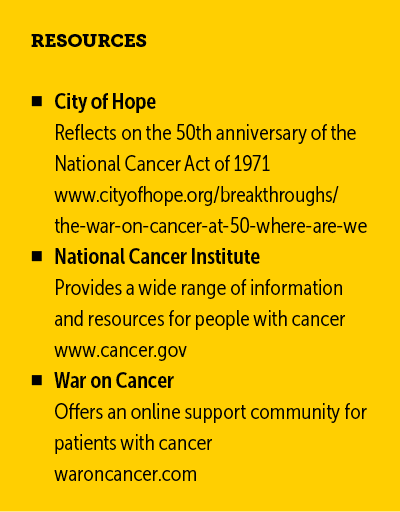How Do You Provide Humanistic Care During a Pandemic?
Because of the COVID-19 pandemic, we are at an unprecedented time in history. We practice at Monter Cancer Center in Lake Success, New York, which is part of Northwell Health, the largest health system in New York state, located in the initial epicenter of COVID-19 in the United States.
Jump to a section
Because of the COVID-19 pandemic, we are at an unprecedented time in history. We practice at Monter Cancer Center in Lake Success, New York, which is part of Northwell Health, the largest health system in New York state, located in the initial epicenter of COVID-19 in the United States.
About 600 patients visit Monter Cancer Center daily. We, as nurses caring for these patients, are facing the brutal force of this pandemic together. We are challenged to meet requirements in our practice—mandatory mask wearing, social distancing, wearing goggles to ensure patient and staff safety. We do not allow visitors for fear of contracting or spreading the virus. During periods when the pandemic was particularly rampant, not being able to receive cancer care was distressing to our oncology population. Still, we attempted to provide comfort to patients behind personal protective equipment (PPE), yet frequently believed we fell short because human touch is integral in oncology nursing.
Our outpatient nursing colleagues have described their stress, witnessing tragedies daily while staying physically distant and attempting to provide humanistic care to our patients. They describe their feelings during this pandemic as follows:
• “I have never felt unsure of the answers I give to the patients.”
• “My patient didn’t come to his treatment visit, was found at home passed away, and was a suspected COVID-19 death. I worry about COVID-19 death for anyone who is missing.”
• “I get nervous whenever any of my patients cough or are not wearing their masks properly despite the recommendation and the policy of wearing a mask at all times.”
Two patients stand out to us. The first, a 22-year-old patient, was found to have febrile neutropenia and was advised to go to our emergency department (ED) for further evaluation. He declined to go to the ED because he feared contracting the virus in the hospital and dying in isolation without his parents. We arranged for his evaluation at home through telehealth. This made a lasting impact for us because we could see the fear of the virus and isolation clearly in the eyes of him and his family members.
The second patient was 57 years old with stage IV pancreatic cancer. He was hospitalized and not able to have visitors because of the pandemic. His family from Virginia was not able to travel to New York because of the shelter-in-place order. He was discharged home; his mother was to take care of him. After discharge, he sustained a stroke overnight at home. A sudden decline in his condition with a massive stroke derailed our plan for his cancer treatment. Ultimately, he decided that he would be at home on hospice—and not in an inpatient hospice setting—so that he could die in the comfort of his home with his mother at his bedside. This made us think about how a pandemic played into his situation: Would he have chosen to be in a facility if his family could visit freely? How do we reach out to touch and hug our patients and family members virtually?
Essential to the art and practice of oncology nursing is its humanism: the interactions between human beings, as between nurses and patients. Nurses are facing the difficulty of providing humanistic care virtually and with PPE as a physical barrier. Patients need our humanistic care, particularly those who are experiencing cancer complications and a COVID-19 diagnosis. In clinical oncology practice, we yearn for the days when we touched, hugged, cried, and laughed openly with our patients. The negative impact of these experiences needs to be remedied through comradery with one another and by accessing self-help and assessment resources. We will find strength from each other when we support each other. We can move forward from this tragedy to better care for our patients and for ourselves. 
About the Author(s)
Mee-young Lee, MSN, ANP-BC, and Jyothi Jose, FNP-BC, are nurse practitioners, and Shamsah Lakhani, MPH, PA-C, is a physician assistant, all at Northwell Health Cancer Institute, Monter Cancer Center in Lake Success, NY. Lee can be reached at mlee31@northwell.edu, with copy to CJONEditor@ons.org.

